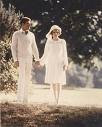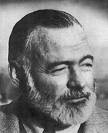
Tuesday, May 4, 2010
Poets' Corner
Tuesday, April 20, 2010
The [Great] Great Gatsby
*Title entries with the chapter numbers. (Chapter 1-3 Journal) Each journal should be at least two paragraphs of your analysis/interpretations for the chapters. Here are some ideas:
1. Choose a different character to focus on.
a. Name the character.
b. Choose a quote that you think best represents the character.
c. Describe his/her best and worst qualities.
d. In a paragraph describe the character's role in the novel.
2. Choose one meaningful quote, and then describe its significance in the novel.
3. Note at least two sightings of one or more of the following symbols: the color green, the color white, silver and gold, the ash heap, the eyes of T.J. Eckleberg, Gatsby's career/Nick's career, Gatsby's library of uncut books/Nick's unread books, Dan Cody, East Vs. West Egg, rain in chapter five, heat in chapter seven, Wolfsheim's cufflinks, faded timetable (showing names of Gatsby's guests), Gatsby's cars/clothes.
Monday, April 12, 2010
Poetry Terms and Examples
Please post your poetry term definitions and three examples here. We may later use this posting to study for a future quiz and final exam review (my apologies for bringing that up!) :)
Tuesday, March 23, 2010
Ch. 4-6: What would you have done?
Thursday, March 18, 2010
Of Mice and Men: Chapters 1-3
*Although our class is highly poetic, Naturalism is not. The prose focuses less on imagery and more on explanations and details. While some of the novel includes metaphors and similes (especially at the beginnings of some chapters), most of the novel is free of poetic devices.
*Explores sociological conditions in a mostly objective manner (instead of focusing on the beauty of the language)
*Explores conflicts between the social classes, especially the exploitation of workers by those in power. Watch for examples of exploitation on the ranch as well as illustration of larger social issues happening in the 1930s within the novel.
*Creates stories in which the reader is an observor in the story. Many characters strive for the American Dream.
*Focuses on an occupation or trade. In the case in Of Mice and Men, Steinbeck's story also documents the lives of migrant workers in the 1930s.As far as the genre is concerned, Of Mice and Men is written as a play-novel, or a mixture of both. Each of the six chapters is an extended episode- the action takes place in one scene and begins with a description of that scene.
Characters also exit and enter with what seems like stage directions. Also, you've probably noticed the large amount of dialogue.For your reader's blog, mention at least three key events that have struck you so far. Do you notice any possible foreshadowing? Steinbeck is a master of this! Also, what kinds of animal imagery is associated with Lennie? Crooks? (If you read chapter 4 already.) Why does Steinbeck describe these characters in animal terms? What's the effect and purpose? Other than that, please include your thoughts, ideas, interpretations so far. Raise questions to the class if you'd like as well.
Monday, November 9, 2009
Ch. 32-end: The Exciting Escape!
This section is dripping with satire of romantic writers; which of Tom Sawyer's ideas did you find most ridiculous? Why do Huck and Jim go along with him? What do Huck's actions in this section reveal about his "journey" throughout the novel? (Has he grown or backtracked in this section?) Some critics (Hemingway included) love the book, but are unhappy with the end. Were you satisfied with the ending or do you agree with them? How does the tone of the ending contrast with the rest of the novel? How does the focus/emphasis shift? Are these positive or negative changes? How does Huck fare in the inherited prejudice vs. human dignity spectrum in this part? What are Huck's plans at the end of the novel? What does the last statement he makes tell you about him? How does it relate to a recurring theme in the novel?
Friday, November 6, 2009
Ch. 24-31: Conning the Conmen
What's your opinion of the duke and king at this point? What should Huck and Jim do about them? What do you think is the object of Twain's satrical barbs in the Wilks episode? What is Huck's major moral tranformation? What did you make of his exchanges and thoughts regarding Mary Jane? Could it be love? How does Twain develop the themes of truth vs. falsehood and appearance vs. reality here? Do you notice any irony or foreshadowing in this section? What else were you thinking as you read these chapters?










